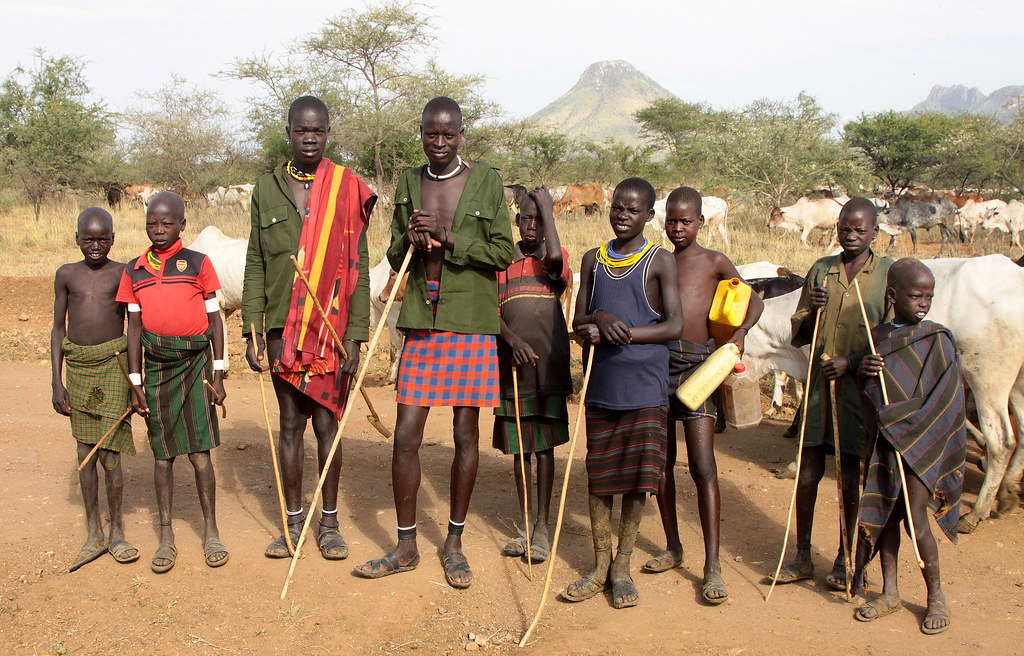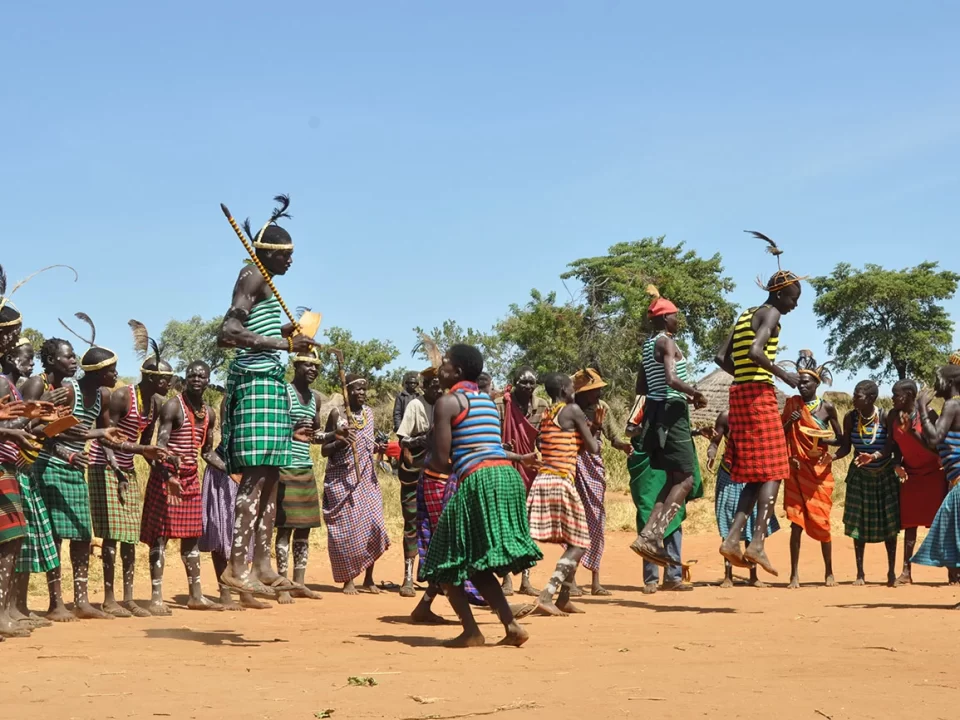Karamojong People and Culture

Booking Bwindi Gorilla Trekking Permits
March 5, 2024
Stay in Buhoma Region & Trek Gorillas in Ruhija Sector
March 5, 2024Discovering the Untamed Beauty: Karamojong People and Culture in North-Eastern Uganda
Karamojong People and Culture — Embark on an enriching journey to explore the profound traditions and lifestyles of the Karamojong people, a remarkable community residing in the remote corners of North-Eastern Uganda. As you venture into this less-explored region, you will not only encounter the resilient spirit of the Karamojong but also witness the captivating allure of Kidepo Valley National Park.
Exploring Karamojong: A Cultural Safari in Uganda
Delve into the heart of Karamoja, a land where time seems to stand still, and the Karamojong people proudly preserve their ancient way of life. Known for their warrior spirit, tenacity, and a traditional lifestyle that predates modern civilization, the Karamojong present a unique opportunity to witness a living history. Trek Africa Expeditions invites you to a Karamojong Cultural Visit during your African safari in Uganda, promising an unforgettable encounter with this extraordinary community.
The Nomadic Pastoralists of Karamoja
The Karamoja people, hailed as warriors and renowned for their stubborn and sometimes violent nature, continue to embody a traditional lifestyle rooted in the Old Stone Age. As nomadic pastoralists, they inhabit the remote landscapes of Karamoja, bordering Kenya and Southern Sudan. Trek Africa Expeditions opens the door to this fascinating world, where the Karamojong persist in their time-honored practices, resisting the tides of modernity.
Unveiling the History: Journey of the Karamojong People
The roots of the Karamojong people stretch back to Ethiopia in the late 1600s AD, marking the beginning of their migration. While some groups moved into Kenya, contributing to the formation of the Kalenjin group and Masai culture, the Karamojong opted to remain behind, finding their abode on the Moroto Mountain. They earned their name, meaning ‘tired old man,’ and have since retained their distinct identity, with the Karamojong language as their cultural heritage. Despite some adopting modern ways, the majority still embraces their traditional lifestyle.
Social Dynamics of Karamojong: Age Systems and Tradition
Karamoja boasts a robust age system, a cultural cornerstone passed down through generations. This system, however, faces challenges and evolution over time. Young Karamojong men undergo a rite of passage into manhood through wrestling, an integral aspect of their tradition. Success in the wrestling match signifies readiness for marriage, ensuring that the prospective husband is strong enough to protect his family. This tradition, alive in remote villages, reflects the enduring spirit of the Karamojong.
Cultural Essence: Cattle Keeping and Transhumance
Central to Karamojong life is cattle keeping, a practice deeply ingrained in their cultural beliefs. While crop cultivation serves as a secondary activity, the arid climate prompts seasonal pastoral transhumance for 3-4 months each year. Water and pasture scarcity drives the Karamojong to migrate, fostering interactions with different ethnic groups and even leading to settlements in other parts of the country.
Challenges and Conflicts: Karamojong as Cattle Raiders
Renowned as cattle raiders, the Karamojong engage in conflicts, raiding neighboring countries for cattle, a lifeline for their livelihood. Acquiring AK47 rifles during Idi Amin’s regime escalated the violence, making them formidable and occasionally ruthless. Attempts by the Ugandan government to disarm them have faced challenges, resulting in continued conflicts and isolation from neighboring communities.
Immerse in the Karamojong Manyatta Experience
Experience the essence of Karamojong life by visiting their traditional villages, known as Manyatta, situated near Kidepo Valley National Park. Trek Africa Expeditions ensures your journey includes not only wildlife encounters but also an opportunity to engage with the Karamojong people. Witness traditional dances, learn about their history, and immerse yourself in the authenticity of this primitive yet resilient community.
Prepare for Your Cultural Safari in Karamoja
Given the semi-desert nature of Karamoja, proper preparation enhances your experience. With high temperatures prevalent, sunblock, insect repellent, brimmed hats, and light clothing become essential. Thick pants, preferably jeans, offer protection from thorny vegetation that characterizes parts of the region. Trek Africa Expeditions welcomes you to a cultural safari where the past comes alive amidst the enchanting landscapes of North-Eastern Uganda.


